RISC OS comes to Raspberry Pi
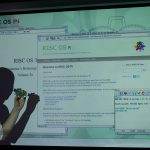
Raspberry Pi is, in many ways, a throwback to the past and not just in terms of performance. The uncased single-board ARM GNU/Linux computer was originally conceived as a way to get students programming again, like they did back in the 1980s and 90s, and now there’s even a 25 year-old OS available for it.
RISC OS is an operating system you’ll possibly be familiar with if you’re of a certain age, and come from the United Kingdom (like me). A descendant of the OS used in the BBC Micro, it was created by Acorn Computers for the First Reduced Instruction Set Computing (RISC) ARM chips, and made its debut in Acorn's 1987 Archimedes microcomputer.
Want to develop your own 3D RTS Game? Try Spring

If you’re the creative type then the idea of designing your own games can seem appealing. For a moment or two, anyway, until you began to think about exactly how many technical challenges you’d need to overcome in order to make this dream a reality.
You don’t have to handle everything on your own, though. Spring is a capable, versatile and open-source 3D RTS engine that can take care of many of the low-level gaming tasks, leaving you to get on with the more important design decisions.
LopeEdit Lite is an excellent Notepad replacement

Go searching online for a text editor with a little more power than Notepad and you’ll quickly come across a host of programmer-oriented tools. And if you’re not a developer then all the talk of “code templates” and “syntax highlighting” may persuade you that these will be overkill, irrelevant to your needs, and so leave you to carry on your search elsewhere.
In reality, though, programmer’s editors don’t necessarily have to be such specialist tools. LopeEdit Lite, for instance, is an excellent Notepad replacement which isn’t just for developers: anyone could benefit from its many and varied abilities.
3 great things we saw at BUILD 2012
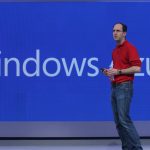
Microsoft's BUILD 2012 conference began October 30th and ran through yesterday, November 2nd. While the event is mainly for developers and IT professionals, there is always some exciting news trickling out that matters to the end-user. This year we saw a lot of news surrounding the company's Azure cloud platform, as well as Windows 8 and Windows Phone 8. Microsoft even held a "Hackathon" with prizes for developers present at the show.
In all, this was one of the more exciting and busier developer conferences that Microsoft has held in years. Perhaps that was due to the newly designed operating system that breaks the mold set way back with Windows 95 and the new ethos that everything should be capable of moving to the cloud. So, what did we learn?
BUILD is back!
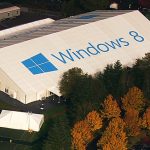
Today, Microsoft kicked off its second BUILD. Last year's event replaced the Professional Developers Conference. This year marks a change in venue, from Los Angeles to Redmond, Wash. and comes amid, rather than before, a flurry of new Microsoft products. Windows 8 launched October 26, Windows Phone 8 yesterday and Office 2013 is released to manufacturing and available to developers and corporate customers. There's Windows Server 2012 and more either out the pipeline or coming down it.
Microsoft is determined to woo developers to its new stuff and accompanying platform changes. During today's Day 1 keynote, attendees learned about the schwag: Surface RT 32GB and Nokia Lumia 920 smartphone. Consider them tools of the trade, for creating and testing new applications. Microsoft also slashed developers' fee for Windows Phone to $8 from $99. That is for just eight days.
Raspberry Pi SoC drivers open sourced
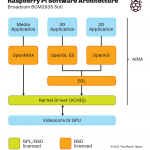
It’s something that programmers of the popular credit card-sized ARM GNU/Linux box have been asking after for a while now, and finally that wish has come true. Broadcom has agreed to make its mobile GPU drivers open source, releasing them under a 3-Clause BSD license.
What that means for developers, is it will now be much easier to implement Wayland EGL client and server support, and allow anyone attempting to port a different OS to Raspberry Pi to take full advantage of the graphics core.
Ubuntu 12.10 'Quantal Quetzal' released
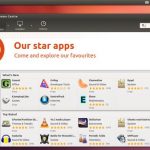
Ubuntu fans, be prepared to upgrade! Canonical, parent company of one of the most popular Linux distros available on Thursday released Ubuntu 12.10 "Quantal Quetzal" in desktop and server variants. It's labeled as a suitable alternative to Windows 8, coincidentally just before the October 26 launch of the latest consumer-oriented operating system from Microsoft.
On the desktop forefront, Ubuntu 12.10 "Quantal Quetzal" brings integration between cloud and desktop environments and integration with popular web-based applications, which Canonical claims is the next evolutionary step in the transition towards a cloud-based, multi-device world. The server variant includes the Folsom release of OpenStack, as well as deployment and management tools touted as a time-saving solution for developer teams that deploy distributed applications.
Microsoft Wowzapp 2012: Develop your Windows 8 app in one weekend

Registration for Microsoft's global Windows 8 hackathon began on Wednesday. The event, called Wowzapp 2012 despite the fact that there's never been another event called "Wowzapp" before, will take place in more than 60 cities across the globe on the weekend of November 9th to the 11th.
The event, previously listed as "Gen Appathon," invites students and aspiring app developers to bring a Windows 8 PC and their rough apps or general app ideas for one-on-one support from Microsoft and community experts, free food and entertainment, and prizes for best Win 8 app, best Windows phone app, and best use of Azure. Attendees will be given Visual Studio 2012 Express for Windows 8 and a free Windows Store registration code, and apps will be published straight to the Windows Store.
Raspberry Pi adds more RAM, keeps price the same
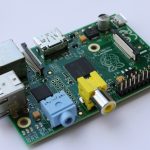
Raspberry Pi, the massively popular credit-card-sized computer, has had a surprising update -- the Model B version will now come with 512MB of RAM as standard, but will remain priced at $35.
If you’re not familiar with the device, it’s essentially a bare, single-board uncased ARM GNU/Linux computer that you connect to your TV and a keyboard. It’s designed to encourage programming and while aimed at children and students has proved a hit with all age groups, and has been put to some great uses, including sending back photos from the edge of space.
Google's new Tablet App Quality Checklist should be mandatory

My only real complaint with the Nexus 7 is the way apps are displayed. Many times developers have not compensated for a screen larger than 4 inches, and the resulting app looks terrible. Nexus 7 does a decent job of covering this up in some places due to the size of the screen, but when you come across an app that has clearly been designed for many screen sizes, you notice the difference.
Google encourages developers to design their apps to suit the operating system instead of the screen size through a variety of mechanisms, the most recent being a checklist to ensure higher quality design practices are being used when developing apps. In my opinion, this checklist should be much more than a friendly suggestion.
Kinect now supports Windows 8, Virtual Machines, and China
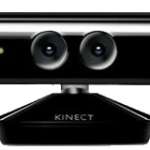
Microsoft has rolled out a major update to the Kinect motion control runtime and SDK for Windows machines on Monday, unlocking new data tools for developers and allowing Kinect to perform in lower light and at longer ranges.
Perhaps the biggest part of the SDK update on Monday is its vastly broadened availability. The Kinect SDK now features Windows 8 compatibility, which gives developers the ability to make apps for the soon-to-be-released next version of Windows. It also features compatibility with Microsoft Hyper-V, VMWare and Parallels, letting Kinect control virtual machines as well. Finally, the Kinect for Windows SDK is now available in the largest market in the world, China.
Smart ways of using DNS data [Q&A]

Nominum is the world’s leading provider of integrated subscriber, network and security solutions for network operators and its software currently processes over one trillion Domain Name System (DNS) queries per day from hundreds of network operators worldwide; a number that far exceeds the combined 6.5 billion searches, likes and tweets served by Google, Facebook and Twitter each day.
Its new N2 Platform and Nominum IDEAL ecosystem gathers and anonymizes this data, allowing application providers’ seamless access to it. I spoke to Nominum’s CEO, Gary Messiana, to find out more about how it works and what it means for network operators and consumers.
Why would Microsoft limit the Windows Phone 8 Preview Program SDK?

Microsoft's plan to only let a few key developers into the Windows Phone 8 Preview Program SDK, understandably upsets many developers. For a plaform with only about 3 percent market share, Microsoft needs all the supporters it can get, or so the presumption goes.
Why lock out most of the people needed to develop apps that take advantage of your new platform? I think there could be two possible answers: (1) a new marketplace strategy based on the quality of apps, and (2) major unannounced features.
Instant WordPress: Test blogs on PCs before deploying them

Setting up a local installation of WordPress on your own PC can be a convenient way to test themes and plugins, but it’s not the simplest of tasks. Along with WordPress itself you’ll need to install and configure PHP, a server, database and more.
Sounds too much like hard work? Then you might prefer Instant WordPress, which provides everything you need and requires no complex configuration at all.
Microsoft opens Windows Azure Mobile Services public preview
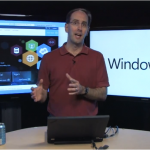
Add this one to the Smart column. Earlier today, Microsoft unveiled Windows Azure Mobile Services, initially for Windows 8 apps, with support planned for Android, iOS and Windows Phone. The concept is a natural extension of Azure as development platform. Hey, why should Microsoft let Amazon and Google build out the infrastructure enabling the cloud-connected device era to trample the PC?
For now, the new service is available in a "public preview", during which time the first 10 Windows 8 apps are free. Developers who don't have an Azure account can create a 90-day free trial one.
Recent Headlines
Most Commented Stories
BetaNews, your source for breaking tech news, reviews, and in-depth reporting since 1998.
© 1998-2025 BetaNews, Inc. All Rights Reserved. About Us - Privacy Policy - Cookie Policy - Sitemap.